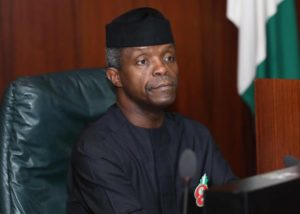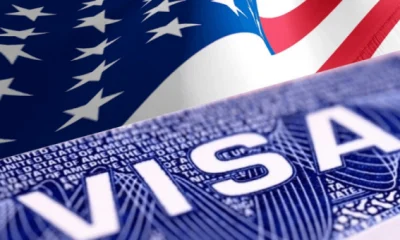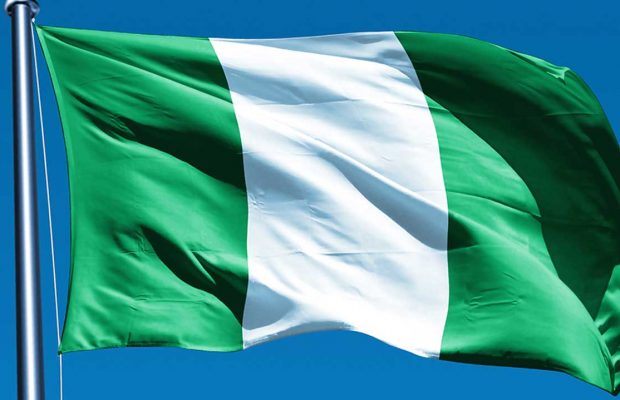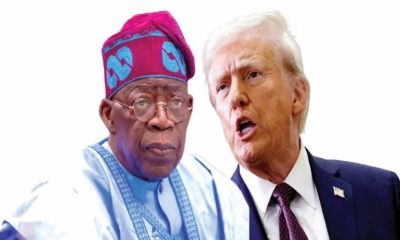Economy
Nigeria Still Suffering From Malabu Scandal – Osinbajo
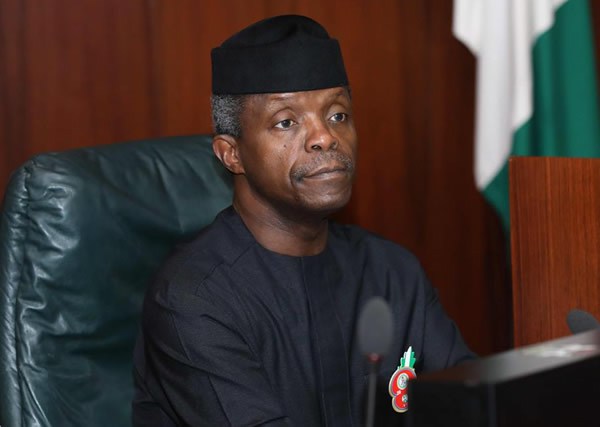
Vice President Yemi Osinbajo said yesterday that Nigeria is still suffering from the consequences of the lack of transparency in the award of OPL 245 to Malabu Oil and Gas Ltd in 1998.
Osinbajo spoke in Jakarta, Indonesia, at a conference on beneficial ownership organised by the Extractive Industries Transparency Initiative
Recalls that the Malabu oil scam, which had been making the headlines for years, is one of the biggest corruption scandals ever witnessed in the global oil industry.
The controversial $1.3 billion deal revolves around “OPL 245”, which is believed to be the most valuable oil field in West Africa.
The scam is being investigated in Nigeria, Italy and Netherlands due to the involvement of oil giants Shell and ENI.
The oil block, which is said to have about 9 billion barrels of crude oil, was sold to Shell and ENI for $1.3 billion in 2011.
The money was then allegedly shared to various public officials in Nigeria as bribes, while the government only got the sum of $210m USD as signature bonus on OPL 245.
According to Osinbajo, the scam had been and is still subject of criminal and civil proceedings in many parts of the world involving huge legal costs.
Osinbajo said, “Nigeria is still grappling with the negative consequences of the use of opacity by senior members of government and their cronies between 1993 and 1998 awarding themselves juicy contracts in the extractive industry.
“One of such incidents involving a company called Malabu Oil and Gas has been and is still subject of criminal and civil proceedings in many parts of the world involving huge legal costs while the full benefit of the natural resource remains unexploited for the benefit of the people of Nigeria to which it belongs”.
Osinbajo added that hidden corporate ownership poses “real and present danger” to most countries, especially the developing ones such as Nigeria.
He said anonymous companies are not always illegal or are not always designed to harm.
The vice president, however, said secrecy provides a convenient cover for the criminal and the corrupt, adding that “we are not just operating from the theoretical or hypothetical standpoint”.
He continued: “Yes, experience has shown clearly that anonymous corporate ownership could serve as vehicles for masking conflicts of interest, corruption, tax evasion, money laundering, and even terrorism financing.
“But this is not just a developing world’s problem. We live in a more inter-connected world, and anonymous companies have footprints and tentacles that do not respect the developed/developing divide.
“Even when the degree of exposure may differ, everyone in today’ world is at risk of the dangers posed by anonymous corporate ownership. If nothing else, the Panama Papers clearly illustrated the global scale and spread of this problem. So this is a global challenge and nothing less than a truly global approach will be needed to tackle it”.
-

 News4 days ago
News4 days agoRamadan, Lent: Shettima Calls For National Unity And Compassion
-
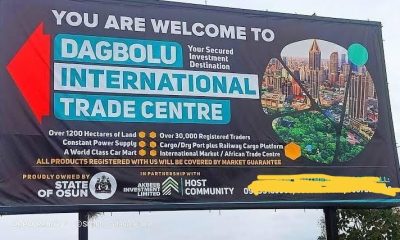
 Opinion4 days ago
Opinion4 days agoReinventing Osun’s Economy Through Dagbolu Intl. Trade Centre: From Quiet Market Lessons To Regional Trade Revolution By Adeboye Adebayo
-
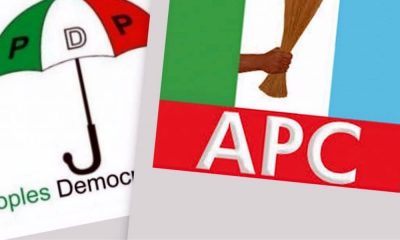
 News4 days ago
News4 days ago‘Wike Factor’: Another PDP Chairmanship Candidate Steps Down For APC In FCT
-

 News2 days ago
News2 days agoInsecurity: Kogi Schools Resume On Monday


